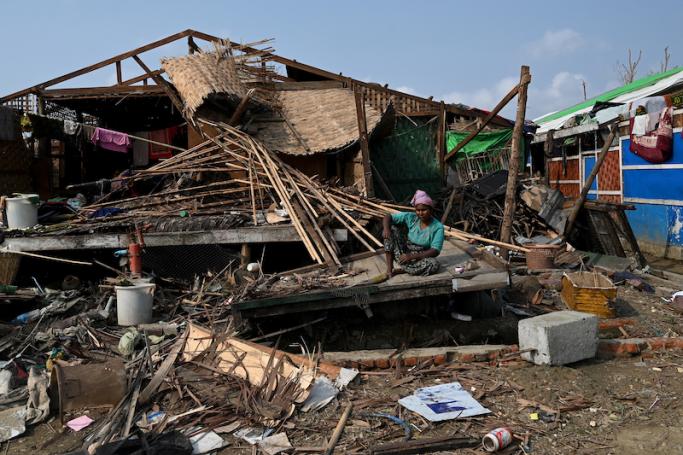The intersection of natural disasters and political unrest unveils a distressing scenario, epitomized by Myanmar's military junta's perplexing and disruptive efforts to delay and obstruct critical humanitarian aid following Cyclone Mocha.
Such a stance serves nobody, including the junta itself.
The people, already grappling with the aftermath of the devastating cyclone, now face compounded suffering due to the junta's inexplicable actions. It is imperative for the international community to denounce these obstructive measures and demand immediate, unrestricted access to provide essential aid to those in desperate need.
This is a humanitarian issue and should not be politicized.
The intentional delay tactics employed by Myanmar's military junta in granting access to international humanitarian organizations and relief efforts defy logic and reason. The crucial time frame for prompt assistance is rapidly closing, leaving survivors vulnerable to further harm, including injuries, diseases, and even potential loss of life as the monsoon season rapidly approaches.
The unfortunate part is the junta's bureaucratic red tape has transformed into a weapon aimed at suffocating relief efforts, thereby intensifying the suffering of the affected populations. This bewildering strategy serves only to consolidate the junta's power at the expense of the most vulnerable – including the disadvantaged living in internally displaced people’s camps, both Rakhine and Rohingya.
Beyond impeding international aid, the Myanmar junta actively suppresses local initiatives striving to provide relief to Cyclone Mocha victims, or at least casts fear when its minions arrest aid workers, as happened briefly last week in Rakhine State with a philanthropist and his team. Civil society organizations and grassroots movements encounter hostility and arbitrary restrictions, preventing them from reaching communities in dire need. By undermining these invaluable local efforts, the junta further isolates the population, denying them the opportunity to rebuild and recover.
The denial of humanitarian aid gives rise to a perplexing crisis that amplifies the impact of Cyclone Mocha and perpetuates an unending cycle of suffering. The absence of access to clean water, shelter, food, and medical supplies heightens the risk of disease outbreaks, deepening the already dire situation. Particularly vulnerable are children, women, and the elderly, whose lives hang precariously in the balance due to the junta's obstructive measures.
Confronting the junta's relentless obstruction requires the international community to stand united and intensify pressure on the military regime. Imposing sanctions and diplomatic measures become indispensable in demonstrating that such abhorrent actions will not be tolerated. ASEAN, regional powers, and international organizations must collaborate cohesively to ensure immediate and unhindered delivery of humanitarian aid to the people of Myanmar.
By attempting to bolster local initiatives and fortifying the resilience of affected communities, the international community can contribute to the long-term recovery of the nation if they are allowed to contribute to the storm clean up.
Myanmar's military junta's inexplicable delays and obstructive tactics regarding humanitarian aid in the aftermath of Cyclone Mocha unveil a shocking disregard for human life and the fundamental principles of compassion. This is one more nail in the coffin of the junta’s sense of responsibility.
People's suffering should never be exploited as a political tool. The international community must act swiftly and decisively to do what it can ensure aid reaches those in desperate need.
As the dark clouds of the monsoon gather, time is running out.












